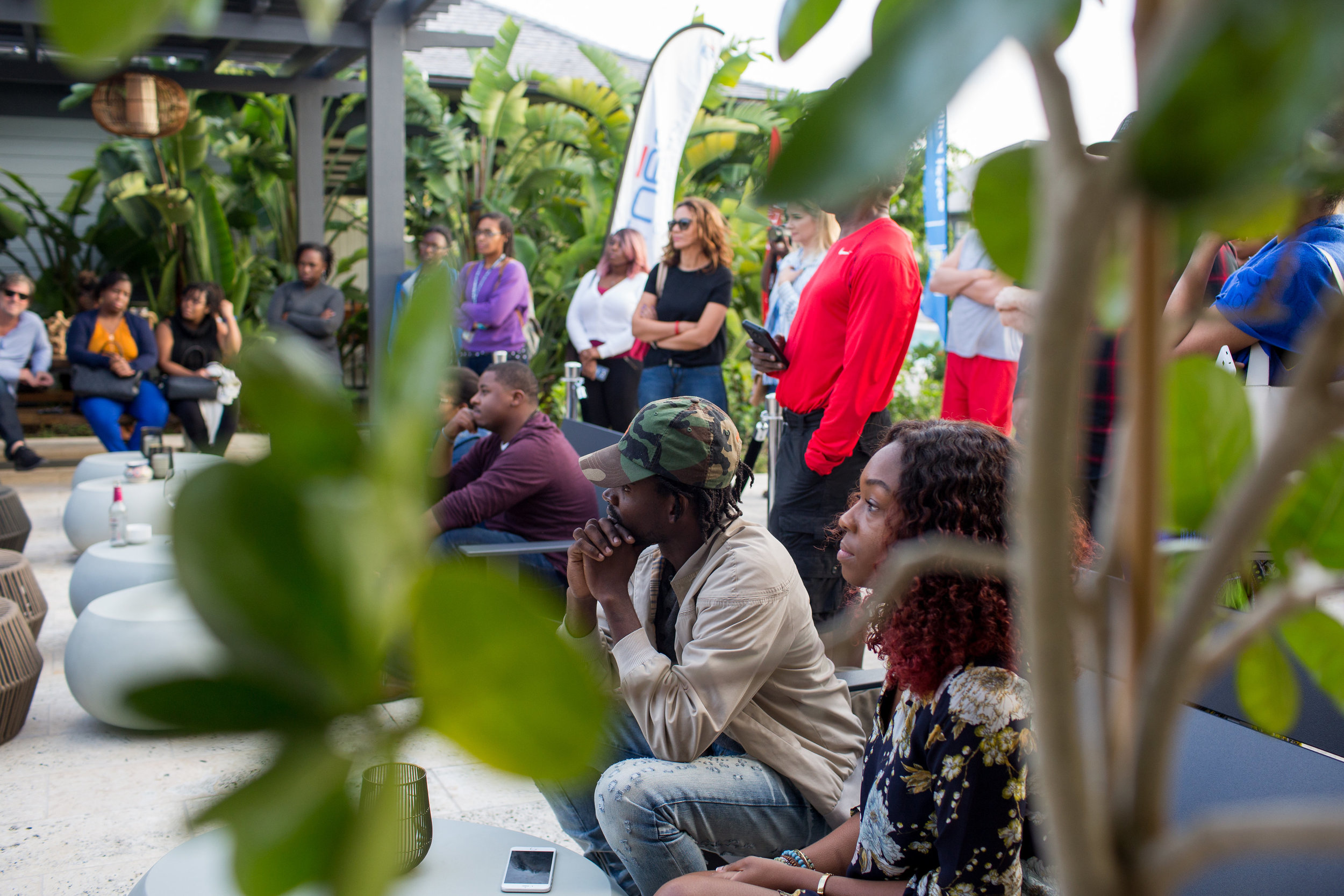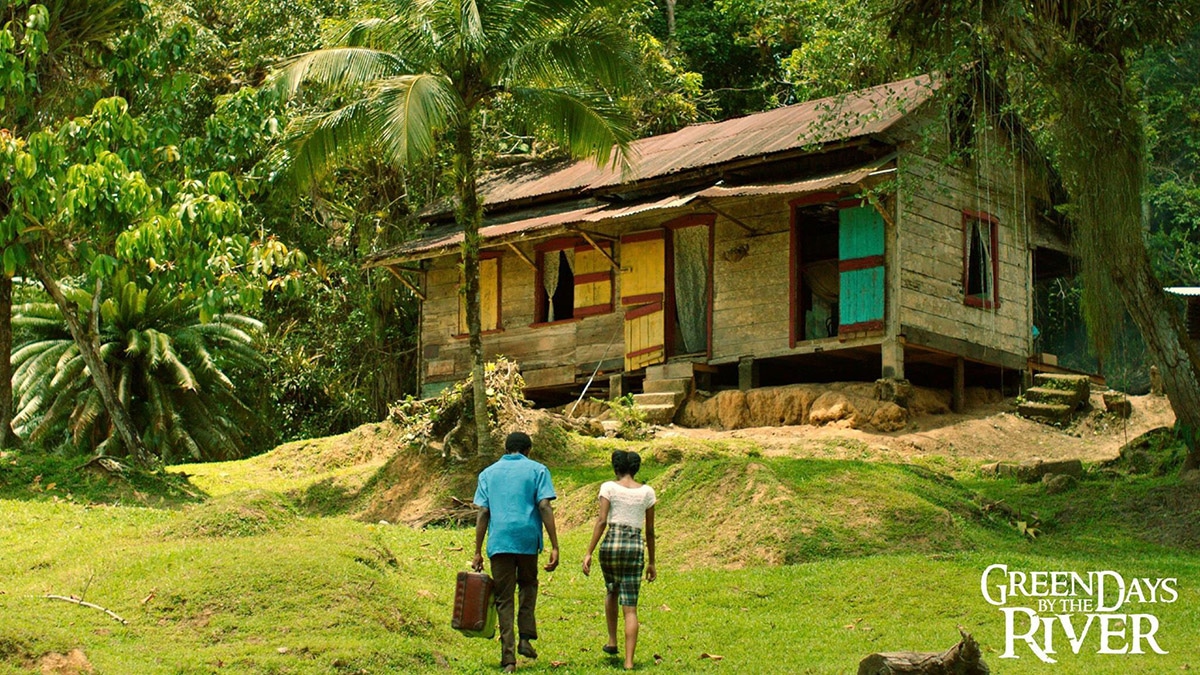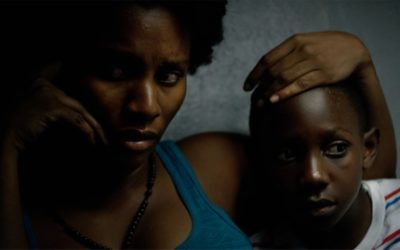
By Dr Ian Bethell Bennett
We often see the representation of indigenous culture on the screen or read about in books that present it in interesting yet reductive ways. Documentary and docudrama can aid in combating the erasure of identity, space and place that so much of the Caribbean is under. Erasure is not only dangerous but also destructive, as it removes tangible culture from the radar and replaces it with ideas of development that belong nowhere and exist everywhere. As the colonial space shows, the rapidly shifting geographies are real, as climate changes and ideas of development imagines space differently. The important part is to document the shift and what was there before.
The Island House Film Festival (TIHFF) provided a terrific line up of both smaller-release, art-house films and Hollywood, widely-available, blockbusters, to draw the crowds. Hollywood definitely has a place in film, but the focus here is on the smaller-released works that do not work within the same traditions or promote the same kinds of stereotypes and stories as do many mainstream films.
The Island House’s comfortable, small and spacious cinema provides an excellent venue for art films that work to deconstruct current ideas of us and them. Some films work against the grain of cowboy/indian sagas that pit the indians as the bad guys and the cowboys as the good and honourable men who civilised America. Three films are briefly explored in this context and those are three distinct and diverse images of Caribbean living and life. One is the filmic adaptation of Michael Anthony’s book “Green Days by the River,” the documentary “The Price of Memory,” and lastly our homegrown “Cargo.”
As New Providence has gone through its cycles of cinemas and drive ins, it is essential to underscore how important the space opened by cinema is. The film festival is also extremely important as it brings public awareness to films that would have otherwise not been seen, or received little attention or space. New Providence has gone from boasting the Wulff Road Theater, The Savoy, The Capital, The Shirley Street, the Golden Gates, the Sunshine Twin, cinemas on Prince Charles and then the RND cinemas on JFK, to now, the cinemas at the mall at Marathon and Island House. Gone totally are the drive-ins on Prince Charles and Carmichael. This is not to bemoan the loss of cinema and drive ins, but rather to document the shifting sands of time and culture, as the industry met its struggle when video machines and cable when satellite dishes stormed the market in the 1980s and then again with crime that made going to the drive-in too unpopular for profit.

Still from “Green Days by the River.”
“The Price of Memory,” a film by Jamaican filmmaker Karen Marks Mafundikwa made in 2014, should be a starting point because of its excavation of memory. Given the single official story that entombs peoples in a deeply dehistoricized silence, we find that history becomes a space that is allowed to hold power over us. This is an excellent discussion of Jamaican and Caribbean political history and economy through a examination of the debate around reparations. Marks Mafundikwa skillfully moves through debates for and against reparations and demonstrates the resistance by the House of Lords in the UK to any possibility of this. What becomes a stumbling block is the interpretation of what slavery is and when slavery becomes unacceptable. Ironies, of course, abound in the film.
Queen Elizabeth II is said to have benefited directly, like so many other Lords and aristocrats, from slavery, the slave trade and even emancipation when the former slave owners received compensation for their losses. Meanwhile, the enslaved Africans received nothing except their ‘freedom.’ Historian Verene Shepherd and Hilary Beckles are shown in the work;both have done stellar work in documenting Caribbean history and slavery. Shepherd details how, after emancipation, Africans were then faced with the competition from indentured Asian labourers, who drove down the price of labour and made it impossible for them to survive. Why do so few know about indentureship in the 21st century Caribbean? This film is excellent discussion of Caribbean history that is hardly known in the Caribbean.
“Green Days by the River,” a drama directed by Trinidadian filmmaker Michael Mooleedhar and produced by Christian James, re-stories Michael Anthony’s novel in very interesting ways. While distinct from the documentary, it is a story of rural life in the mid ’20s in Trinidad, the mixing of two groups, Indo-Trinidadians and Creole or Blacks. These groups are always pitted against each other and made to seem as if there is little mixing, when we understand that especially in rural communities, there is a great deal of inter-and commingling. It is well acted and well shot. The foliage and nature is is amazing, particularly as the ‘picture’ of the Caribbean is more exclusively of beaches and water, the rich and deep textures and greens of Trinidad is arresting. The story, following faithfully Anthony’s novel, is a daily life saga, but has deep and menacing messages. Nothing comes for free, as the main character, Shellie, finds out. You cannot play with people’s lives, and kindness offered may have an ulterior motive.
The film brings the landscape in as the primary presence or character, which is enlightening, because there are so many differences and messages that are deployed through its inclusion. The importance of land and the differences between the coast and the bush seems to be highlighted, which also underscores the differences between the Blacks and the Indians. Magic and spirituality, though sometimes dark, are cast along with coming of age and the struggles to understand manhood. Shellie, finds himself, much like the region, locked in a relationship he had not taken seriously prior to and during his youthful dalliances. It is a quick and sudden, not to mention painful awakening. The lushness of Trinidad is brought to bear on the fecundity of the Caribbean that is overplayed in so many early travels narratives.

The Island House Film Festival 2018 hosted a wide range of screenings, talks and workshops where guests from across the island were able to learn from and engage in discussion with filmmakers from The Bahamas, the Caribbean and around the world. Image courtesy of The Island House / Photographed by Dede Brown
In “Cargo,” Kareem Mortimer and James Dylan put to film the savages of inequality and corruption, though without spelling it out. A deeply troubling and revealing film, in equal parts beautiful and ugly, it is a rendering of national politics that need to be spoken of in humanising language, but often remains deeply and problematically unchallenged, because Haitians in The Bahamas are simply unwelcome and have become the foil to nationalism. Ironically, and the film demonstrates this, class and race are not neatly compartmentalised, as is frequently presented by conversations that claim criminality as the space of Blackness and vice versa. So much of the riches of the country arise from illegality or barely legal and dark transactions that come down history from the establishment of the country to today. The viewer sees the transformation of the main character from a supposedly loving father and kind man, though there is always an underside that is barely acknowledged, to a pathological being, who inflicts devastation and suffering on all those around him. An excellent capturing of the horrors of migration, smuggling and immigration and the senseless inhumanity lived by so many through interconnected chains that are imperceptible on the surface. It is when we dig deeper that all the unsightly spews to the surface. Reminiscent of Ian Strachan’s “Diary of Souls,” it is horribly painful and also cathartic, as long as the message gets across. “39 Haitians buried in a mass grave” has another story that is now more actively spoken of.
Perhaps more needs to be said for the kind of revelation art brings to life.
Michael Mooledhar’s film “Green Days by the River” will be screened from February 9th at the Island House Cinema starting at 6:00pm.

